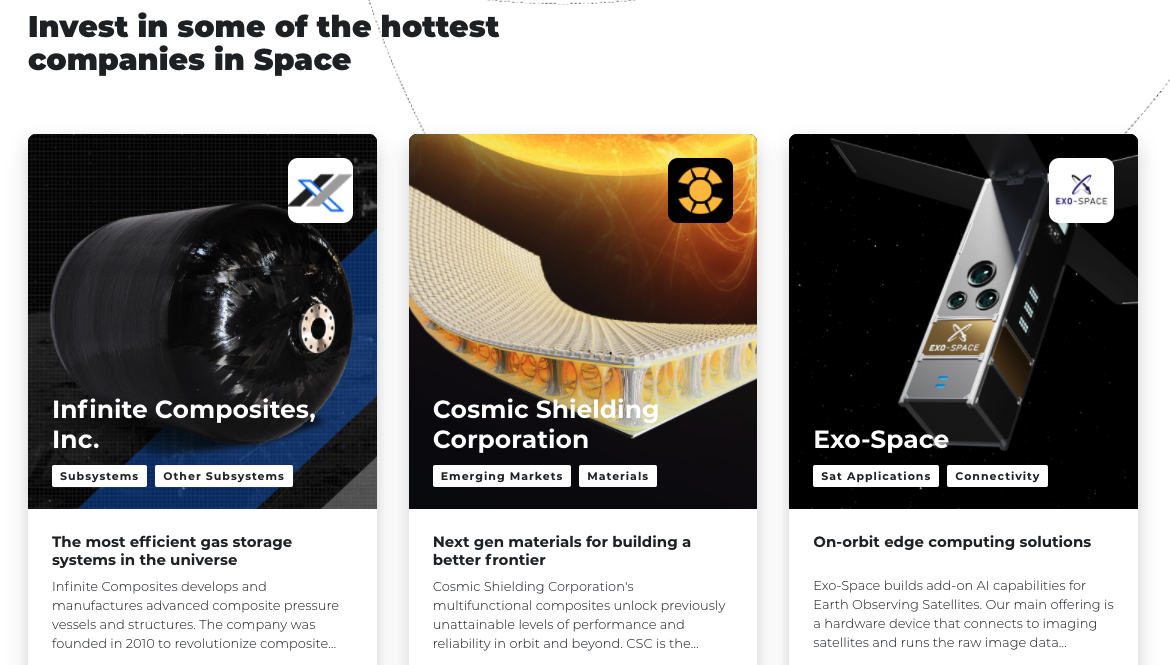The Basics - Investing in Equity Crowdfunding
🚀 Originally published on SpacedVentures.com
Startup equity has always been light-years away from the average American, as prior to the JOBS ACT only accredited investors could access private equity, which is not traded on a public stock exchange. That all changed when Regulation Crowdfunding (Reg CF) took effect in 2016 and opened up new possibilities for retail investors.
We saw just how powerful these investors are earlier this year with meme stocks like GameStop, and AMC which say a remarkable amount of retail investor activity.
A new, social-media-savvy cohort has entered the fray from the meme mania. Since the start of 2020, retail investor trading activity as a share of overall market activity has nearly doubled from between 15% and 18% to over 30%, according to Credit Suisse.“We believe some of the new retail activity is here to stay,” wrote an analytics team at Bank of America in a report to clients.
These savvy retail investors aren’t just taking the stock market by storm, but have been targeting investment phases pre-IPO.
Today, there are multiple startup deals available to investors through proven platforms like Spaced Ventures. More and more issuers are entering the Regulation Crowdfunding space due in part to the increased raise limit— starting March 15th, issuers can raise up to $5 million per 12 month period. This is attracting those non-accredited retail investors who previously would not have access to these pre-IPO equity deals.
Startup investing, and private investing in general, is finally going mainstream thanks to Reg CF. If you’re new to startup investing, new to Spaced Ventures, or just curious, we want to help you to be prepared to invest. In this article, we’ll walk you through the basics of equity crowdfunding investing.
Start with the deal page
To invest in a startup, you’ll need to use an SEC-registered platform, like Spaced Ventures. We choose companies that meet our standards while providing a clean, intuitive interface and handling all the finer details. You’ll also notice the Issuer is required to provide information on each offering so the investor can learn as much as possible about each offering and make an educated decision.
Each deal page is designed to help you, the investor, learn about a company, its product, and the investment terms (such as the minimum investment amount). Here are some important features to look for when you’re exploring our deal pages:
- The deal terms
- The problem the company is solving
- Their solution to the problem
- Their proven success also called traction
- A business model overview
- Relevant market/industry context, as well as their competition
- Company founders and vision
As a potential investor, you can use all of this information to make an informed decision all the while using the data to inspire further research. If any of the terms are jargon to you, we prepped a Down to earth glossary to make things even easier.
Don’t overlook the Discussion and Updates section when exploring a deal page, where investors can ask the founders questions and read their responses. This is a valuable opportunity to get to know the founders, see how they interact with potential investors and ask any questions you might have.
Under Documents, you’ll find the company’s Form C, which contains financial information such as revenue and cash on hand. It’s important to know that the information found in Form C may not be fully up-to-date: it’s more of a snapshot of the company’s finances at the time of filing. If something changes materially, companies are required to update their Form C and provide notice to investors. We’ll make sure to let you know, so it’s important that you keep an eye on your inbox for our messages.
Deal pages are an invaluable tool for investment research, where we strive to provide the information you need to make an informed decision. Now that you have a general idea of how deal pages work, the best way to get to know them better is to explore a few of our offerings.

Additional online research
Investment research starts at the deal page, but it doesn’t have to end there. If you have unanswered questions and want to find out more about the company, there is a lot you can do to make sure you leave no stone unturned.
If you see your question has not been asked by any of the investors in the discussion tab then ask away. If you have questions regarding navigating the platform, you can always reach out to us if you need any additional help with ours.
For general information, you can always head over to Google to search for reviews or discussions of the company’s product. You can also find helpful information on Youtube, which often has informal discussions of new and up-and-coming products, it’s great for getting a deeper understanding of a company’s product and their competition.
I personally enjoy looking at a company’s social media accounts, which can say a great deal about their image and how they interact with customers. However, it’s not unusual for an early-stage company to be a little light in its social media presence. If there isn’t much going on there yet, that’s not necessarily a bad sign. Founders have quite a bit on their plate.
If the deal is in an industry that you’re not familiar with, consider brushing up on your knowledge with some online research. After getting some background from the deal page, you can search Google News to find out what else is happening in the market.
Lastly, don’t underestimate the value of friends or acquaintances who are knowledgeable about the industry. Ask them what they think of the deal. They might bring a long-term perspective with personal insights that you can’t find online.
Whether or not you’re ready to start investing, Spaced Ventures is here to help. Take your time exploring our deal pages, and find answers to your questions in our FAQ. The more deals you evaluate, the more you’ll understand how it all works.
When you’re ready, it’s never been this easy or affordable to get started.
